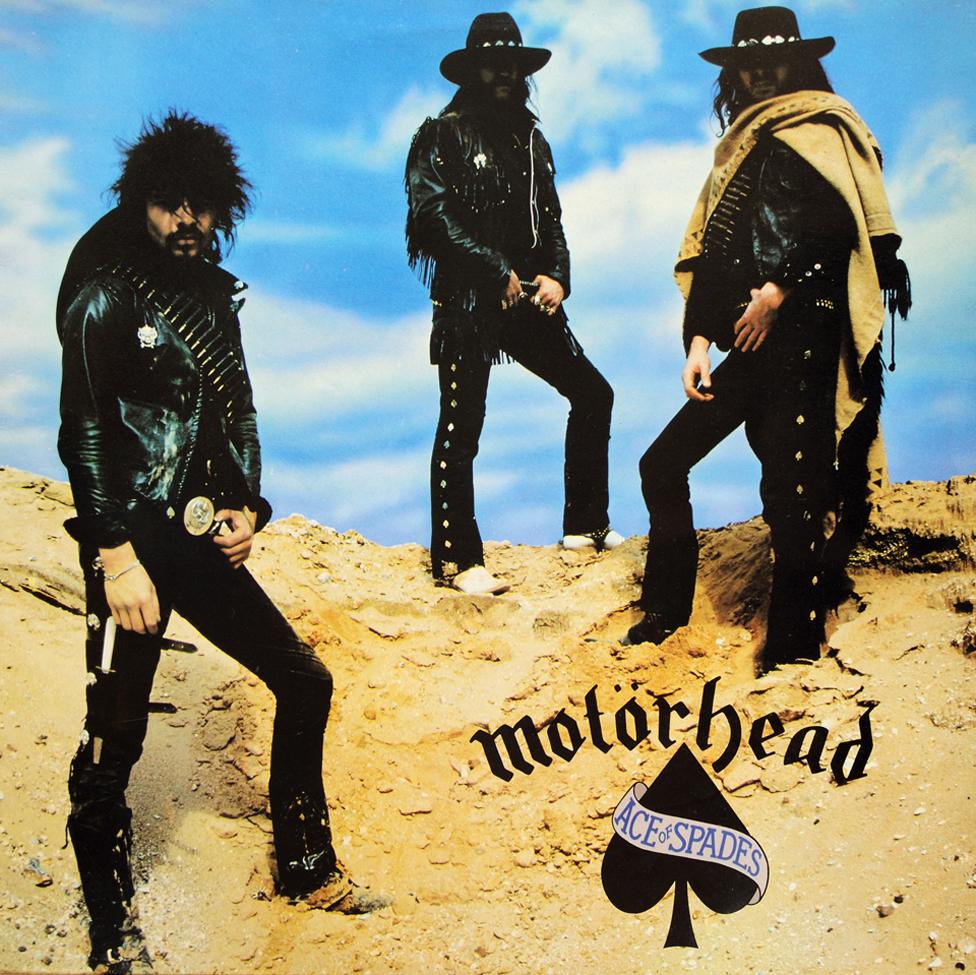Smashed Hits: Ace of Spades
- Published

Lemmy, founder and lead singer of rock band Motorhead, has died. Alan Connor reflects on the inspiration behind the famous anthem, Ace of Spades.
"They probably think it's all clever metaphors, which it isn't."
So Lemmy told the BBC in 2013. He didn't say who "they" were, but he was talking about Ace of Spades. Motorhead's trademark song was, he said, simply about playing cards.
Well, yes and no. There's a good reason why the chorus isn't about, say, the eight of spades.
When he moved to London, Lemmy spent an unsurprisingly large amount of time in pubs. Between visits to the bar, he enjoyed the one-armed bandits. Some of these used, instead of cherries and bells, cards. "So I wrote it about that," insisted Lemmy, as if this legendary piece of music that means so much to so many was nothing more than a description of losing some coins to a machine in a Ladbroke Grove boozer.
Writing the song was itself a gamble, he said "to see if you can do a word exercise and get all this gambling motif into these three verses".
If you take it at face value, there's a lot of gambling in there - pushing up the ante, snake eyes and indeed "double up or quit, double stake or split". The line "Read 'em and weep - the dead man's hand again" was, said Lemmy, a tribute to the Old West gunslinger Wild Bill Hickok.
A poker game in Deadwood, Dakota, went very badly wrong for Hickok. One of the other players reacted to losing by shooting him in the back. Hickok was still holding his cards - aces and eights, since known as the dead man's hand.
As poker hands go, aces and eights is not a terrible selection, but thanks to Hickok it's thought of as unlucky. And one of those aces is especially bad luck. No jackpot for guessing which.

The Oxford Dictionary of Superstitions recounts a news story from 1969 - Peter Lumley, who ran a model agency, made up packs of cards sporting pictures of his most attractive female clients and sent them to the matrons of all the London hospitals, suggesting that this might be a good way of cheering up their male patients. There were 51 pictures in all. No model wanted to be the ace of spades.
At best, the Ace of Spades is bad luck. At worst, it's death. In an earlier interview, Lemmy was a little more forthcoming about the undeniable metaphor. Looking at the spade on Lemmy's arm, festooned with the legend "BORN TO LOSE LIVE TO WIN", and the spade on their album sleeve, not to mention the song Ace of Spades, the interviewer asked: Why this card?
"Because it's bad luck. The ace of spades is bad luck, isn't it? See, so we figured if, if we used bad luck as a theme, then it can't get any worse."
That's more like it. Embracing your bad luck, gambling even though you're "born to lose", and even though "gambling's for fools". Never mind what Lemmy said - with respect, Ace of Spades can be viewed as a metaphor. You could look at it as the Lemmy philosophy of living just how you want, in the full knowledge of the inevitable consequences.
His colleague, Motorhead guitarist "Fast" Eddie Clarke, recently summed it up: "I would rather have Ace Of Spades than a million quid in the bank, because Ace Of Spades'll be here after I'm gone."

More from the Magazine

Catapulted back into the spotlight as this year's chart-topping X Factor winner's song, Forever Young originally acted as an uncharacteristically direct song by Bob Dylan about his son, Jesse. But it came at an important moment in his career, writes Alan Connor.

Subscribe to the BBC News Magazine's email newsletter to get articles sent to your inbox.